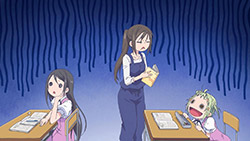 |
 |
 |
 |
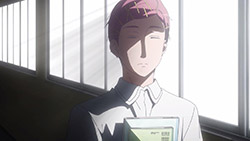 |
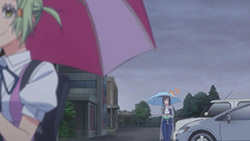 |
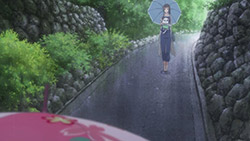 |
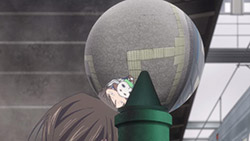 |
 |
 |
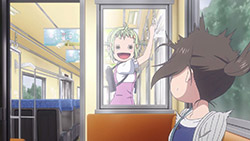 |
 |
 |
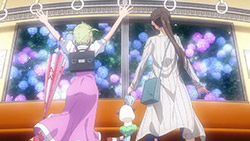 |
 |
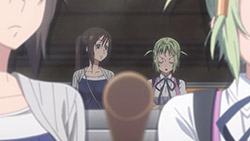 |
 |
 |
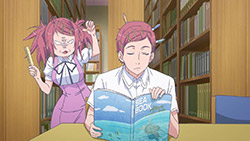 |
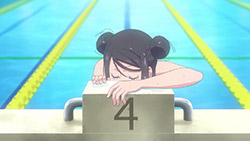 |
 |
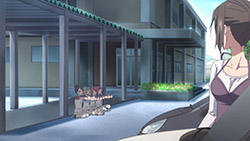 |
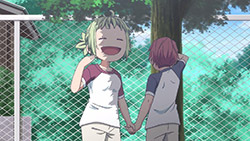 |
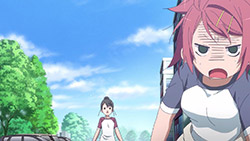 |
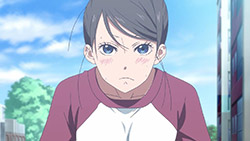 |
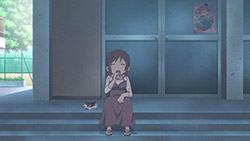 |
 |
 |
 |
 |
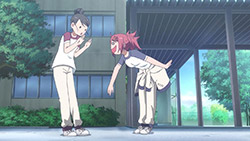 |
 |
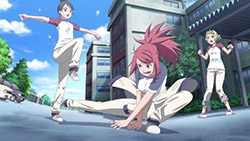 |
 |
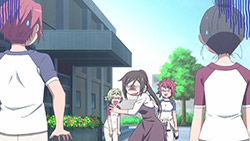 |
 |
「雨のおわりのコ / 夏のはじまりのコト」 (Ame no Owari no Koto / Natsu no Hajimari no Koto)
“The Story of the End of the Rain / The Story of the Beginning of Summer”
Something of a different episode this week to the previous. For starters, this is the first two-parter of Amanchu!, as in two shorter episodes, back to back. As formatting goes, that’s fairly natural; the manga chapters of Amanchu! are, in general, not very long, and often more short stories than part of a grand narrative. The anime adaptation has done a pretty good job of stitching and blending the manga together into something with a bit more sense of continuity (again, repeat after me: Satou Junichi can do no wrong), and continues to do so in this episode, but there’s only so much you can expand on a simple story about the beauty of wet flowers. And so the two parter, about summer.
I have little love for either the rain or the heat, I must admit. For one, I’m a vampire, and rain and sun will destroy me utterly. I also don’t have that proper appreciation for the way the world looks either parched or soggy. Humans are 60% water, but at the same time we’re just not made to be that wet. In anime, though, things look good in the rain. One of the things I think we take for granted, I think, is that for everything we see in anime, someone went out of their way to draw it. This includes weather. i think we should all take a moment to appreciate how much work goes into these show; Amanchu! looks just as fantastic in the rain as out of it, which must be the product of some sort of artistic skill.
The other reason why I enjoyed this episode is also the other reason why it’s a bit different compared to the ones we’ve had: it’s narrated by Mato-chan-sensei. Being a much more adult kind of character compared to her charges. The difference in atmosphere is especially noticeable in The Story of Story of the End of the Rain, with its aura of melancholy. Sensei is also the perspective I personally most empathise with; I’m certainly not young anymore, so I too sometimes get the urge to just sit around, watch the kids, and act like a codger. But Mato-sensei never lets go of her inner child. That said, would an inner child still indulge in playground games these days? Aren’t they running around looking for Pokemon? Bah, humbug.
Overall, great episode. There was a certain poetry in it, as there often is when the Japanese talk about seasons. I know in the west we do poems about seasons too (them being a natural extension of talking about the weather), but there seems to be a point of obsession about it in cultures further east. The 5/7/5 structure of haikus are well known, but the less famous custom is that they’re supposed to be abut seasons. And it’ll all be a metaphor for something, usually death, because the Japanese are a very cheery lot.
Not Amanchu!, though. Amanchu! really just did want to talk about the weather. And I enjoyed 20 minutes of it doing so. How very strange. Well, that’s slice of life.
Preview
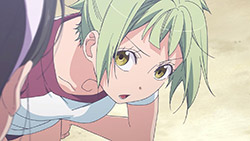 |
 |
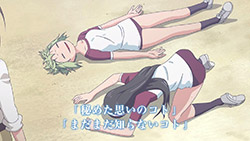 |

This episode just made me love Katori-sensei even more.
She’s great 🙂
I know, right?
Now I feels like watching an episode of Aria where Akira E. Ferrari narrated the whole thing.
This episode is feels -so- Amano-sensei’s best, like, Akari (Mizunashi)level episode with all the appreciation of little things in life. And Gontiti doing very great for the BGM as well.
Been years since the last time I watch an episode like this in anime (and I think the last time was Origination episode where Athena Glory being Athena).
Japanese Red Light, Green Light is a lot more complex strategic to what I know…
*a lot more strategic. D’oh.
it is ineteresting how games reflect real life and its challenges…
hide-and-seek and tag -and red light-green light while were at it – give some basic skills neeeded in hunting
while chess and go do teach us strategic thinking
CIVILIZATION has probably taught more people more about history than any textbook ever
That’s right, Civ taught me heaps of history. Like how Jerusalem, capital of a fascistic Taoist empire, completed the Taj Mahal in 284 B.C.
so it taught you what is fascism, taoism and what is Taj mahal 😛
which is more than average American probably knows